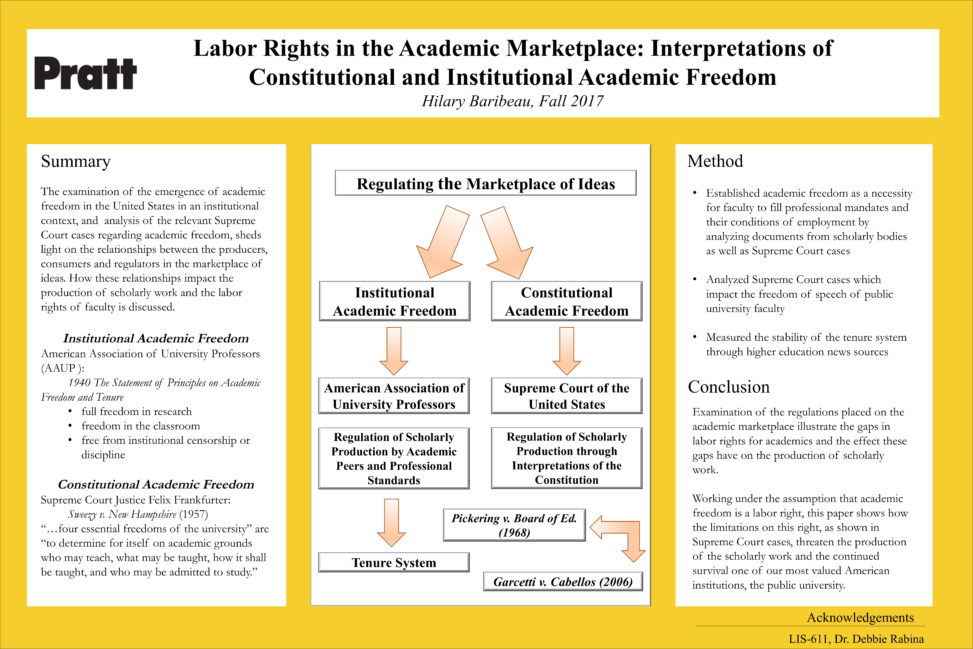The academic marketplace, and production of ideas within this marketplace, is defined by the relationships between employers and employees, consumers and producers, and the market value of scholarly work as set by the American public. Scholarship has always been a commodity, but the market and its regulations have shifted the context of labor surrounding scholarly production so that the laborers are now more at risk and are provided with fewer protections. The contract of employment for public university faculty exists on two levels: the advancement of employment and job security through the tenure processes, which is defined by the academic institution and informed by the AAUP, and by the rights and restrictions of public employees of the state as defined by the Constitution. However, faculty today find themselves in a tenuous position. By fulfilling the requirement to publish in order to achieve tenure, faculty are at an increased risk of lawsuits and termination of employment. The decline of tenure positions in the United States also threatens faculty job security and academic freedom. The unequal academic marketplace has created working conditions which threaten the production of scholarly labor and threaten the traditional social value of the public university.
